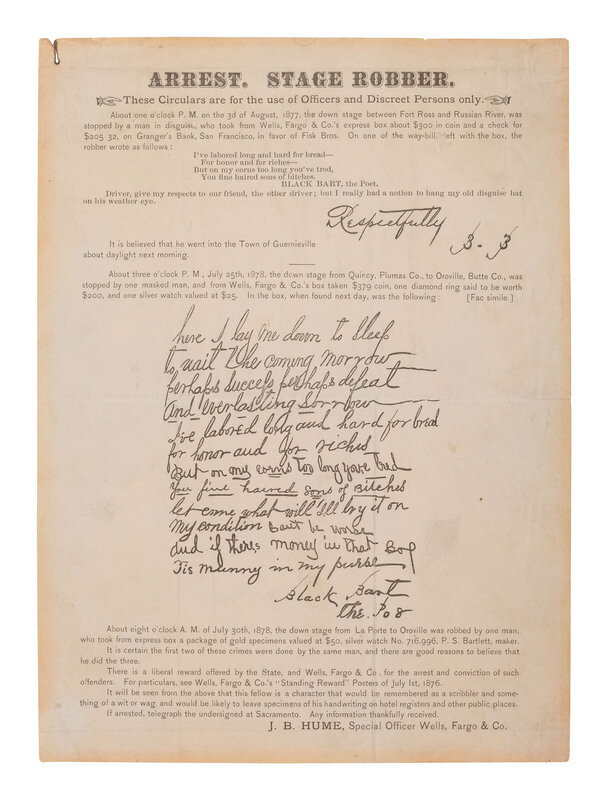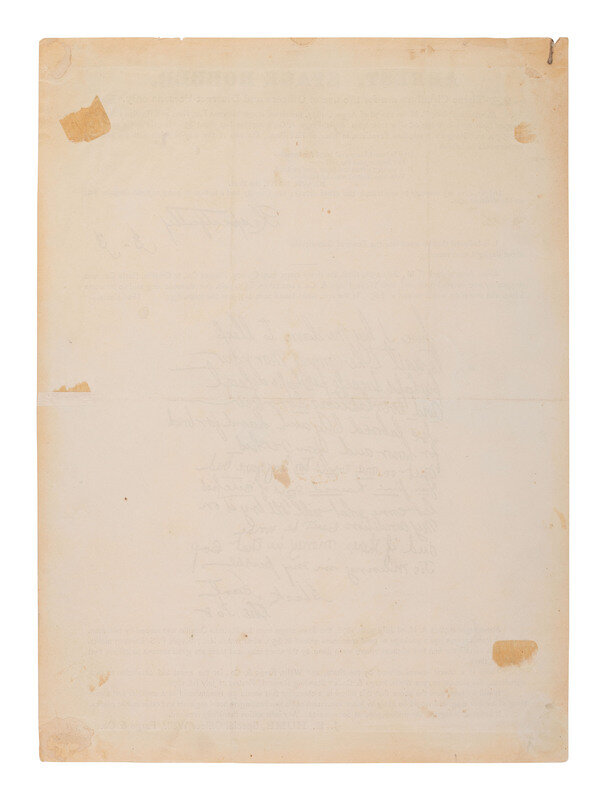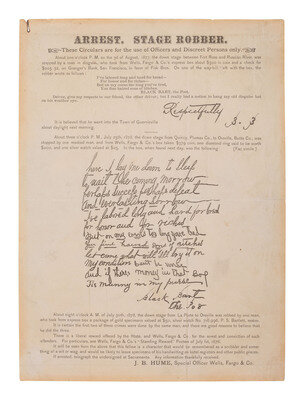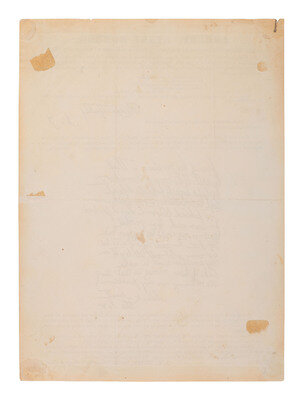Condition Report
Contact Information
Auction Specialist
Lot 221
Sale 6425 - American Historical Ephemera and Early Photography, including The Larry Ness Collection of Native American Photography
Part I - Lots 1-222
Oct 23, 2025
10:00AM ET
Part II - Lots 223-376
Oct 24, 2025
10:00AM ET
Live / Cincinnati
Own a similar item?
Estimate
$3,000 -
5,000
Price Realized
$3,900
Sold prices are inclusive of Buyer’s Premium
Lot Description
[WESTERN AMERICANA]. Arrest. Stage Robber. Circular issued by J. B. HUME of Wells Fargo & Co., seeking the arrest of "Black Bart." Ca 1877.
8 x 11 in. printed circular with facsimile signature and verse from Charles E. Boles, also known as "Black Bart, the Po 8." Undersigned in print by J. B. Hume as Special Officer for Wells, Fargo & Co.
This circular begins by stating that it and its duplicates are "for the use of Officers and Discreet Persons only." Text then narrates a stage robbery that took place on 3 August 1877, at which the robber left a verse reading: "I've labored long and hard for bread— / For honor and for riches— / But on my corns too long you've trod, / You fine haired sons of bitches..." and signed "B. B." It goes on to explain that the robber is believed to have traveled to the town of Guernieville after that, and another stage robbery occurred on 25 July 1878, with a similar poetic note left behind. This one signed "Black Bart the Po 8."
A third stage robbery is then described, and it is posited that all three crimes were committed by the same man.
A "liberal reward" is described as being offered by the State and Wells, Fargo & Co. "for the arrest and conviction of such offenders," but the amount is not provided.
Charles E. Boles (1829-1888) was an American outlaw and Union soldier, serving in the 116th Illinois Infantry during the Civil War. He was severely wounded at the Battle of Vicksburg and participated in the March to the Sea led by General Sherman. Boles received brevet commissions to first and second lieutenant, and was discharged on June 7, 1865.
Considered genteel bandit, known for his sophisticated flair more so than treachery, Boles became one of the most notorious stagecoach robbers to operate in and around Northern California and southern Oregon during the 1870s and 1880s. He adopted the nickname "Black Bart," and signed the two poems he left behind at his crime scenes thusly. Those poems were circulated widely and helped make the "Black Bart" persona legendary.
Boles was arrested and captured after his final robbery on 3 November 1883, but after a 4-year stint at San Quentin, he disappeared and was never heard from again.
The Emily T. and Adolphus Andrews Collection of Native American Art



